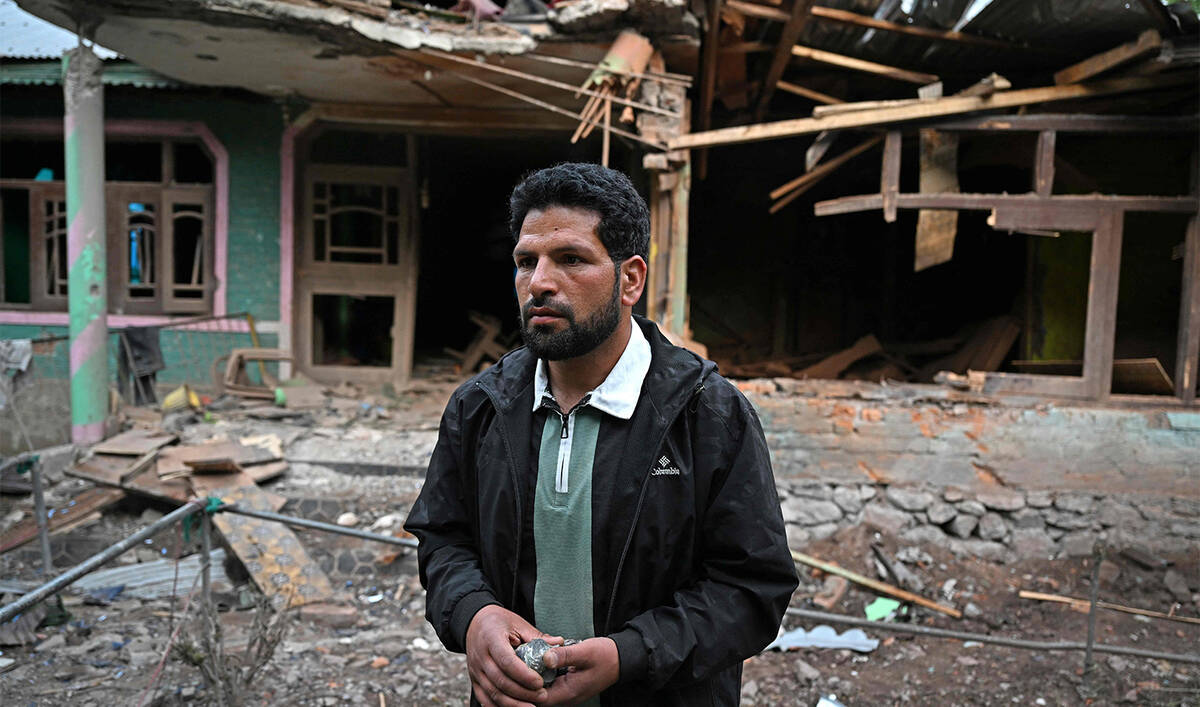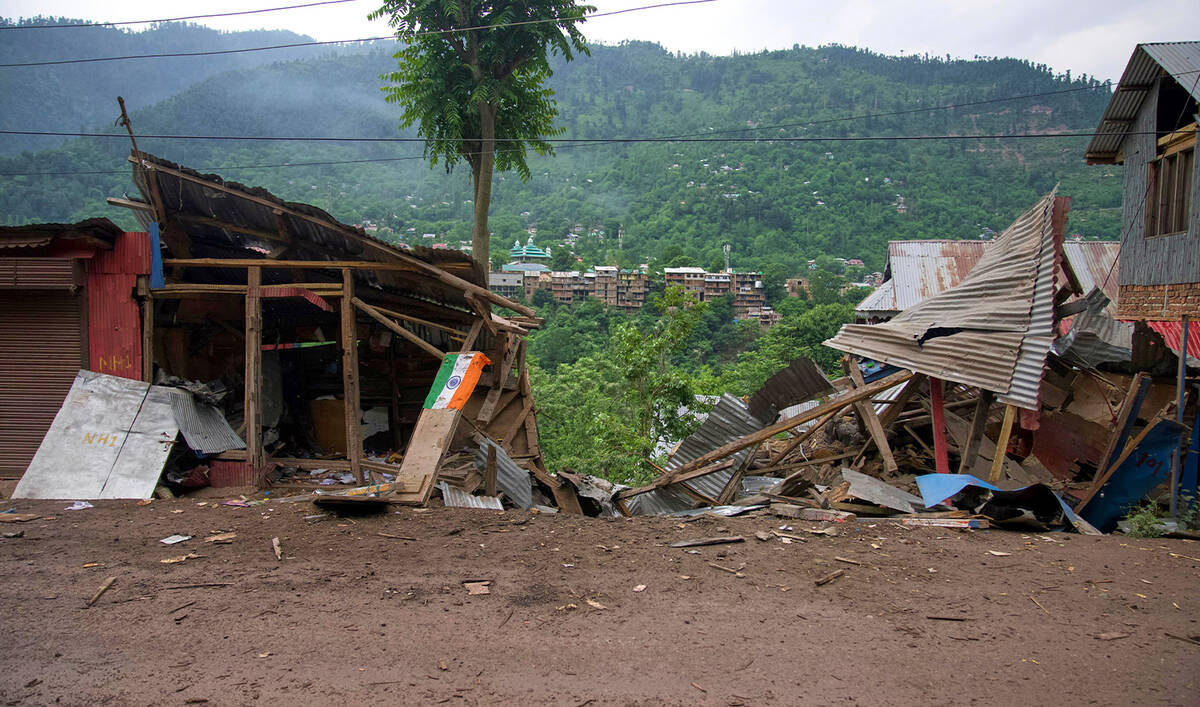POPAYAN, Colombia: “Mom, I’m on my way. Save me some sancocho!“
The last time Otilia Ante, 78, heard from her son Alexander, he was telling her to put aside some of the hearty meat and corn stew on which he was raised in southwestern Colombia.
Alexander, 47, was in neighboring Venezuela at the time, on a circuitous route home from Ukraine where he had fought invading Russian forces with the army there.
But he and his Colombian brother-in-arms Jose Medina, 36, never made it onto the last leg of their long journey back from the battlefield.
The pair vanished on July 18 in Venezuela, a staunch ally of Russia, just before their connecting flight to the Colombian capital Bogota.
The next time their families saw the men was in a video released by Russia’s FSB security service on August 30, showing them being led down a corridor in prison garb with their hands cuffed behind their backs before being interrogated.
Moscow accuses the pair of acting as mercenaries, a crime punishable in Russia by up to 15 years in prison.
Jose’s wife Cielo Paz said seeing the images left her “heartbroken.”
Describing the anxious wait for news about his fate, she said she and the couple’s seven-year-old daughter “feel as if we’re also imprisoned.”
Jose and Alexander hail from Colombia’s southwestern Cauca department, the epicenter of a decades-old conflict involving the Colombian army, right-wing paramilitaries, left-wing guerrillas and drug gangs.
The pair met on the frontlines in eastern Ukraine, 11,000 kilometers (some 6,800 miles) from home, in a battalion counting many foreigners, which suffered heavy losses.
After fighting through the grueling Ukrainian winter into spring, they asked to be discharged.
The men’s families deny they were guns-for-hire, insisting they were recruited by the Ukrainian government and not a private contractor.
Colombia has one of Latin America’s largest armies and a growing pool of ex-soldiers acting as mercenaries.
About 50 Colombians have been killed in Ukraine since the start of the war in February 2022, according to Colombian government figures.

Relatives of retired Colombian military officer Jose Medina are pictured during an interview with AFP at their home in Popayan, Cauca department, Colombia, on September 13, 2024. (AFP)
Jose and Alexander were paid $3,000 a month to fight alongside Ukrainian forces — almost ten times the basic salary of a Colombian soldier.
After 14 years in the army, Alexander, who is married with a daughter, went to work as a cash-in-transit driver. He was laid off after failing an eye test.
After for months of unemployment, he decided to enlist again, this time in Ukraine.
“His plan was to go there and (earn enough money to) get his mother out of this neighborhood,” Alexander’s brother Arbey told AFP, describing the district of Popayan as “very dangerous.”
He said recruiters had assured the Colombians they would not be deployed on the frontlines.
“I think they were deceived,” he said.
“My love, here we are in Caracas,,” Jose wrote in his last WhatsApp message to Cielo from Caracas international airport.
“He was on his way home,” she told AFP at their Popayan home, which Jose was planning to finish building with his earnings.
Arbey said Alexander and Jose chose to fly through Venezuela because “the tickets were cheaper” and the pair were unaware of developments in the increasingly isolated Latin American state.
Venezuela was then in the midst of a high-stakes presidential campaign.
Incumbent strongman Nicolas Maduro claimed victory despite polling station results published by the opposition appearing to show a clear victory for their man.
Russia is one of just a handful of countries to have recognized Maduro’s victory, leading to speculation the Venezuelan strongman handed over the Colombians as thanks.
Bogota last week issued its first statement on the matter, saying merely it had requested information from Moscow about their “legal status, location and health status.”
It added a third Colombian, Miguel Angel Cardenas was also being held, without giving details.
The men have been assigned a lawyer but their families say they have been unable to communicate with their state-appointed defender.
Holding up a picture of Jose in uniform, his daughter Alison told AFP he meant “nearly everything” to her.
“Give him back to me,” she appealed.


























